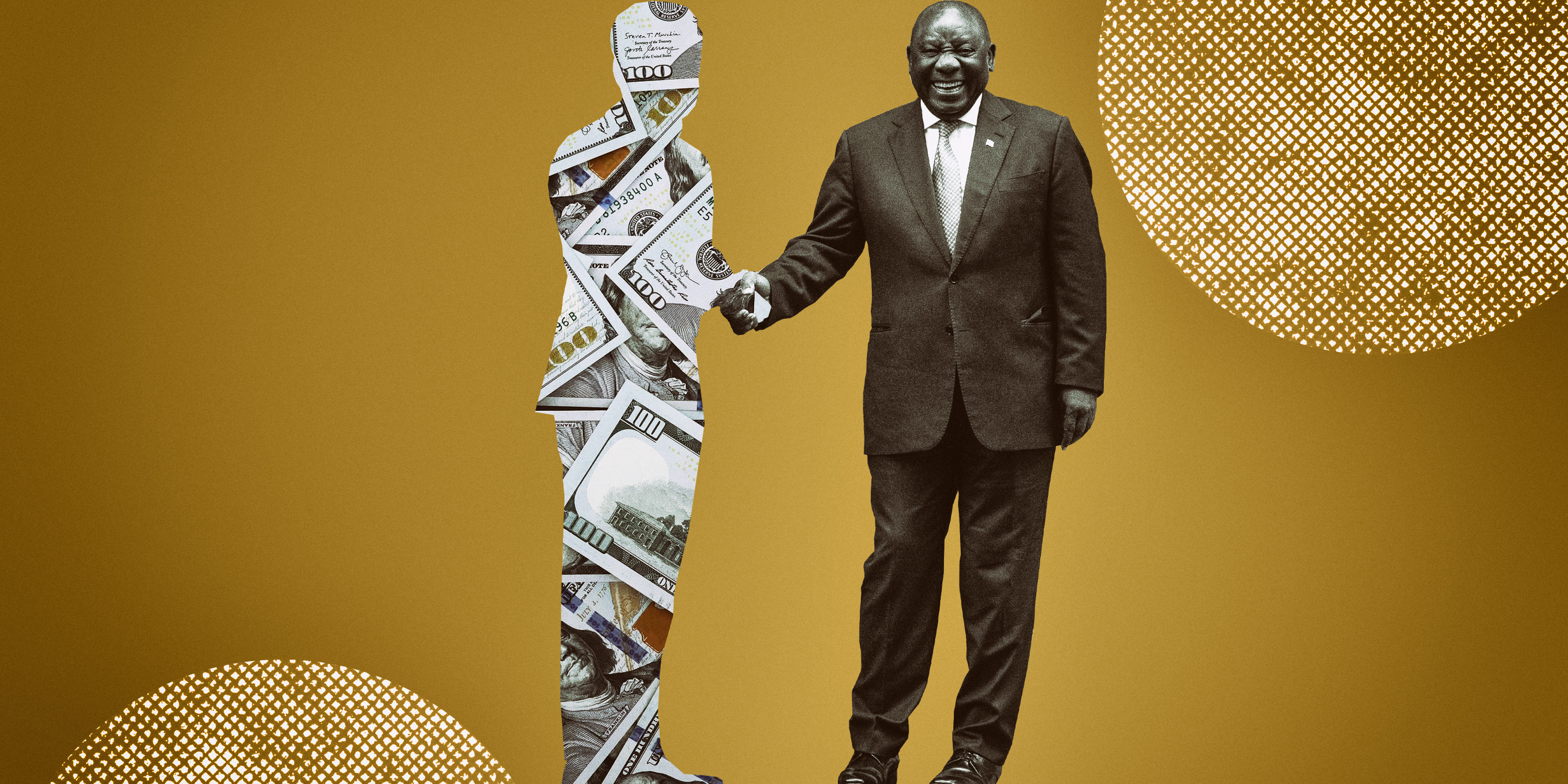“It’s bad politics roiling financial markets. It’s like a lighter version of Nenegate all over again,” David Shapiro quipped as investors digested the Phala Phala report that hangs over President Cyril Ramaphosa’s fate in office.
Shapiro, a veteran money manager whose career spans five decades, has seen many moments that have shaken business, including the dark days of apartheid, the technology crash in the early 2000s, the global financial crisis of 2007, the firing of Finance Minister Nhlanhla Nene by then president Jacob Zuma (known as Nenegate) in 2015, and the Covid pandemic.
But the latest market decline — spurred by the Phala Phala saga — is a blow for Shapiro because it comes at a time when there are many green shoots for SA’s economy and a reform agenda in the state.
The economy is performing better than expected, as seen in the growth figures for the third quarter. Finance Minister Enoch Godongwana has presented a positive mid-term budget, with the government making headway on reducing debt and spending. Exchange rate movements have been caused by international developments rather than local trouble.
“But the Phala Phala saga has sent shivers down the spines of investors. It might have wiped out all the goodwill towards SA,” says Shapiro, who manages assets and investments worth more than R13-billion at Sasfin Securities.
Markets reflected shaken investor confidence in SA as the rand fell by 4% and yields on 10-year government bonds spiked to their highest since 2020 on 1 December, a day after the release of a report on the theft of $580,000 from Ramaphosa’s Phala Phala farm in Limpopo.
The impact on the JSE was also swift as foreign investors bailed out of companies exposed to SA. The local equity market saw outflows of nearly R4-billion, and roughly R9-billion left the local bond market.
To recap: a report by an independent panel found that Ramaphosa may have broken some of SA’s anti-corruption laws, violated his oath of office, and committed misconduct — fuelling concerns that he might resign or be impeached.
Visit Daily Maverick's home page for more news, analysis and investigations
Succession concerns, impact on economy
The big worry in financial markets was about who would take over from Ramaphosa if he resigned, and whether his successor would ensure continuity in his economic policies, maintain the structural reform agenda and exercise prudence in public finances.
Although Ramaphosa didn’t resign, some investors are still spooked and will remain nervous until there is clarity on what will happen with the ANC’s leadership. That is unlikely to be resolved by year-end.
Regardless, the Phala Phala saga has heightened SA’s political uncertainty, which is harming the economy and scuppering investment.
Underscoring this is that within hours of the Phala Phala report’s release, food manufacturer Premier Group cancelled its JSE listing, which had been set for 8 December, citing uncertainty and volatile markets.
Daily Maverick understands that Premier would have been worth more than R5-billion on the JSE and that the company had received support for its listing from institutional investors. But the market rout inspired by Phala Phala made some investors nervous, prompting them to pull out.
Professor Raymond Parsons, an economist at North-West University’s Business School, has estimated that prolonged uncertainty and lower investment could shave as much as a percentage point off the SA Reserve Bank’s already low growth forecast of 1.1% in 2023.
Although some investors have long taken a negative view towards SA, Ramaphosa’s cash-in-the-couch fiasco prompted them to double down on their stance.
For example, Gryphon Asset Management, based in Cape Town, has been negative towards SA-based investments for the past three years.
“And we are getting more and more negative every day. SA carries considerable political risk and has stepped that up over the past few years following the Zuma years. We have a structural political problem,” says Cassie Treurnicht, an analyst at Gryphon.
Big business is worried
Several business players canvassed by Daily Maverick have also expressed concerns. Business Unity SA CEO Cas Coovadia describes the uncertainty surrounding Ramaphosa’s future as a “significant crisis for our country”, adding that it “poses high risks that will see further erosion of confidence”, especially in the run-up to the ANC elective conference from 16 December.
“Our country can ill-afford further erosion of confidence and instability, at a time [when] business is committed to devoting resources and capacity to work with the government to address numerous crises in SA. Business needs policy and political certainty, with a capable government,” says Coovadia.
Big business rallied around Ramaphosa and supported his ANC presidential campaign in 2017. He is seen as business-friendly, pragmatic and a consensus-seeker — a big shift from his predecessor.
In the current ANC leadership, Ramaphosa is seen as irreplaceable, says businessman Sipho Pityana.
“The fact of the matter is that the nation’s hopes are on Cyril, even with all his shortcomings. Anything that raises questions on his integrity, credibility and ethical conduct is a huge blow,” says Pityana, who had many engagements with Ramaphosa when he was previously the president of Business Unity SA and had board roles at Anglo Gold Ashanti and Absa.
On the other hand, Pityana argues, Phala Phala sets an important precedent for strengthening SA’s democratic processes and holding a sitting president accountable for possible wrongdoing.
Critics have a mixed report card on Ramaphosa’s presidency.
Coovadia and Pityana have praised Ramaphosa for reforming institutions such as law enforcement, the SA Revenue Service and some state-owned enterprises. But he has also been criticised for not moving fast enough, especially on energy reforms, an area on which he is fixated on getting consensus among stakeholders, which gets in the way of speedy decision-making.
Businessman Reuel Khoza has joined a growing chorus of leaders who have criticised Ramaphosa for “not being decisive enough” when it comes to pulling SA back from the brink. DM168
This story first appeared in our weekly Daily Maverick 168 newspaper, which is available countrywide for R25.






